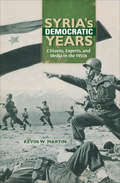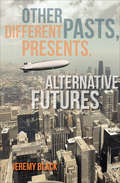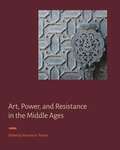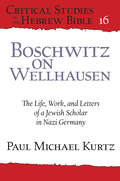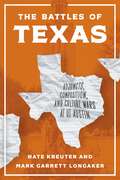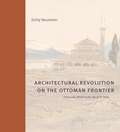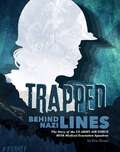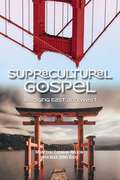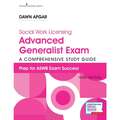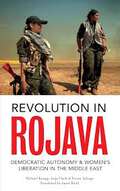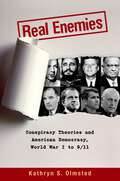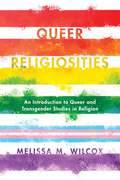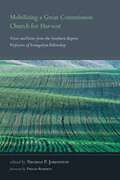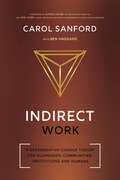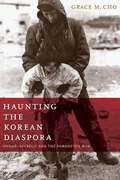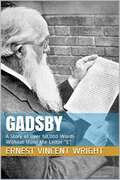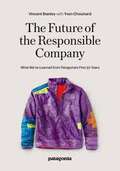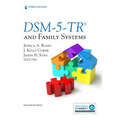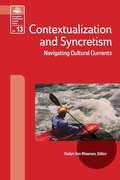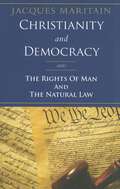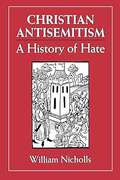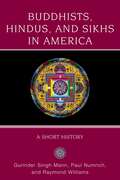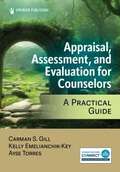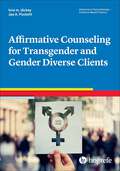- Table View
- List View
Syria's Democratic Years: Citizens, Experts, and Media in the 1950s (Encounters: Explorations in Folklore and Ethnomusicology)
by Kevin W. MartinThis study of mid-20th century Syria blends &“cultural theory and comparative history&” to offer &“intellectual depth and relevance beyond the case at hand&” (The Middle East Journal). When Syria became fully independent in 1946, the young republic faced the task of forging a new national identity. From 1954 to 1958, Syria enjoyed a brief period of civilian government—popularly known as &“The Democratic Years&”—before the consolidation of authoritarian rule. In Syria&’s Democratic Years, Kevin W. Martin provides a cultural history of the period and argues that the authoritarian outcome was anything but inevitable. Examining the flourishing broadcast and print media of the time, Martin focuses on three public figures, whose professions—law, the military, and medicine—projected modernity and modeled the new Arab citizen. This experiment with democracy, however abortive, offers a model of governance from Syria&’s historical experience that could serve as an alternative to dictatorship.
Other Pasts, Different Presents, Alternative Futures (Encounters: Explorations in Folklore and Ethnomusicology)
by Jeremy Black&“The most robust defense of historical counterfactuals to date . . . For those interested in this fascinating subject, Black&’s book is indispensable.&”—Publishers Weekly (starred review) What if there had been no World War I or no Russian Revolution? What if Napoleon had won at Waterloo in 1815, or if Martin Luther had not nailed his complaints to the church door at Wittenberg in 1517, or if the South had won the American Civil War? The questioning of apparent certainties or &“known knowns&” can be fascinating and, indeed, &“What if?&” books are very popular. However, this speculative approach, known as counterfactualism, has had limited impact in academic histories, historiography, and the teaching of historical methods. In this book, Jeremy Black offers a short guide to the subject, one that is designed to argue its value as a tool for public and academia alike. He &“demonstrates that, in skillful hands, counterfactual history is more than just fun; as one ingredient among many, it can be an extremely fertile source of explanation&” (History Today). &“[Black&’s] illustrative examples of &‘what if' &‘how,&’ and &‘why&’ will make readers sit back and wonder.&”—Kirkus Reviews &“With a unique methodology, Black performs a what-if analysis of history to show how little it takes to change the world&’s fate . . . This book provokes thought and speculation while also entertaining.&”—Foreword Reviews &“A sparkling defense of the legitimacy and utility of counterfactual history―of what ifs―and the best single work on its subject available.&”—Weekly Standard
Art, Power, and Resistance in the Middle Ages (Signa: Papers of the Index of Medieval Art at Princeton University)
by Pamela A. PattonThis volume addresses a vital point of intersection between images in the Middle Ages and those in the modern world: the potential of medieval works of art to convey messages of power and resistance. Provoked by the misuse of medieval imagery in modern discussions, the contributors to this volume assess how medieval images connect to discourses of power in both the past and the present.The contributors each began with a single question: In the eyes of their makers and viewers, how were medieval images understood to assert or to resist forces of power? Their case studies come from a wide range of cultural, geographic, and historical contexts: the Byzantine, Ottonian, and Valois courts; the Umayyad and Castilian regimes of the Iberian Peninsula; the pluralistic military and commercial zones of the eastern Mediterranean; and the metaphorical as well as personal battlegrounds linked to medieval “courtly love” culture. Over eight chapters, the authors highlight patterns of visual rhetoric still evident in art today. They invite readers to contemplate how modern priorities and sensibilities might amplify, mute, or transform the discourses related to power and resistance that were threaded through the visual culture of the Middle Ages.This insightful book should be of value to anyone interested in medieval art history and art’s relationship to power and authority in society.In addition to the editor, the contributors include Heather A. Badamo, Elena N. Boeck, Thomas E. A. Dale, Martha Easton, Eliza Garrison, Anne D. Hedeman, Tom Nickson, and Avinoam Shalem.
Boschwitz on Wellhausen: The Life, Work, and Letters of a Jewish Scholar in Nazi Germany (Critical Studies in the Hebrew Bible)
by Paul Michael KurtzJulius Wellhausen was a monumental figure in the field of biblical studies, but his work has been denounced as antisemitic in recent years. This book offers a nuanced view of Wellhausen’s scholarship through a critical edition and translation of one of the last doctoral dissertations by a Jew in Nazi Germany: Friedemann Philipp Boschwitz’s Julius Wellhausen: Motives and Measures of His Historiography.Boschwitz presents a deep, holistic analysis of Wellhausen's thought, examining his work on ancient Judaism, early Christianity, and formative Islam within the framework of comparative religion and cultural history. He also situates Wellhausen in the context of German intellectual history, tracing the influence of Johann Gottfried Herder on Wellhausen and Wellhausen on Friedrich Nietzsche. In addition, Paul Michael Kurtz provides incisive commentary and archival materials that highlight Boschwitz’s scholarly achievements and open new vistas onto Jewish intellectual history. Piecing together fragments from private letters and official documents, Kurtz shows the formidable challenges Boschwitz faced as a Jewish scholar under a discriminatory political and academic regime. The correspondence also reveals Boschwitz’s rich social life and connections with major émigré thinkers such as Salo Baron, Leo Strauss, and Karl Löwith. Boschwitz on Wellhausen brings together a fascinating wealth of published and unpublished material to tell an original story of great importance to scholars of the Hebrew Bible, the New Testament, and the Quran as well as those interested in German Judaism and modern philosophy.
The Battles of Texas: Adjuncts, Composition, and Culture Wars at UT Austin
by Mark Garrett Longaker Nate KreuterThe 1980s were a consequential decade for universities. The marketization of higher education, the adjunctification of labor, and culture wars over curriculum transformed the landscape in a short period of time. The Battles of Texas traces the lived consequences of this upheaval by focusing on one influential institution: the writing program at the University of Texas at Austin.Drawing from university records, newspaper archives, and present-day interviews, Nate Kreuter and Mark Garrett Longaker provide an on-the-ground perspective of the radical creation of UT Austin’s writing program and the subsequent events that made national headlines: the mass firing of lecturers in 1985, the national debate over “multicultural” content in the first-year curriculum, and the divorce of the writing program from the English Department in 1992. Despite these pressures, however, the authors also reveal how writing program administrators at UT Austin exerted their own agency to resist economic and political forces in service of their students and adjunct lecturers. By highlighting the parallels between the 1980s and current labor and political pressures in higher education, The Battles of Texas offers a strategic perspective for academics and administrators today. Combining a narrative institutional history with a public digital archive, searchable and arranged in exhibits and in chronological annals, The Battles of Texas provides academics with the resources they need to survive in times of rapid transition.
Architectural Revolution on the Ottoman Frontier: Greece and Albania in the Age of Ali Pasha (Buildings, Landscapes, and Societies)
by Emily NeumeierIn the early nineteenth century, the most consequential developments in Ottoman architecture were taking place not in Istanbul but in the farthest reaches of imperial territory. Emily Neumeier investigates this wider phenomenon through a consideration of the architecture of Ali Pasha of Ioannina, one of the most prolific patrons in the history of the Ottoman Empire, who undertook a building program so ambitious that it ultimately got him killed.Ali Pasha is still a household name in present-day Greece and Albania, where he served as Ottoman governor from 1788 to 1822. To consolidate his rule over an incredibly diverse population, the governor set out on a sweeping building program that included mosques, palaces, military fortifications, dervish lodges, and even Orthodox Christian monasteries. Drawing upon a wealth of primary sources, Neumeier reveals how Ali Pasha’s buildings shifted the sociopolitical order by testing the standards of patronage established by the imperial court and relocating administrative authority from center to province. To reconstruct the world that Ali Pasha built, Neumeier draws from both extensive fieldwork and abundant archival material, whose far-flung nature—from Istanbul to London—reflects the impressively wide scope of Ali Pasha’s influence.Rigorously researched and packed with fascinating stories, this book presents an innovative spatial history of the Ottoman frontier during the age of revolutions, a pivotal period in the late eighteenth and early nineteenth centuries when there was no obvious blueprint for power. It will be of interest to specialists in art and architectural history, the Ottoman Empire, and Mediterranean, Islamic, and Modern Greek studies.
Trapped Behind Nazi Lines: The Story of the U.S. Army Air Force 807th Medical Evacuation Squadron
by Eric BraunIn narrative nonfiction style and format, tells the story of 30 American military members who crash-landed in Albania, behind Nazi lines, during World War II and describes their harrowing journey to safety
Supracultural Gospel
by Mary Lou Codman-WilsonPositive cross-cultural communication is an essential skill when sharing the gospel. Unfortunately, many common Western biblical constructs create stumbling blocks for people of different backgrounds, causing them to reject the gospel. But that doesn’t have to be the case. Join Dr. Mary Lou Codman-Wilson and Alex Zhou as they dialogue about Alex’s experience becoming a believer in the US and his struggle to share his faith when he returned to China. They model a process of examining our cultural worldview to overcome the tensions associated with living out our faith in a context dominated by different religious or secular systems. Supracultural Gospel presents: seven principles to adapt the gospel to bridge East and West; essential attitudes and practices of emotionally healthy and spiritually discerning discipleship; and key gospel concepts in non-Western terms, while retaining biblical accuracy Written in a highly conversational tone and validated with personal stories from many Asian internationals, Supracultural Gospel is a powerful and practical tool for those who are passionate about cross-cultural discipleship. Are you ready to unpack your worldview and embrace a supracultural gospel?
Social Work Licensing Advanced Generalist Exam
by Dawn ApgarThe third edition of the bestselling acclaimed exam guide for the ASWB Social Work Advanced Generalist Exam has been thoroughly updated to reflect current practice and core knowledge tested on the exam. Recognized for its unique test-taking tips and strategies, Dawn Apgar’s complete review of the Knowledge Skills and Abilities (KSAs) across the core social work content areas helps readers discover gaps in their knowledge so they can identify strengths and target weak areas. Included with every print purchase is a bonus 170-question practice test that mirrors the actual exam in length and structure, plus explains correct answers. KSAs are identified for each question so test-takers can easily locate relevant source material for further study. This Dawn Apgar guide for the Social Work Licensing Advanced Generalist Exam is the best test-taking package available, ensuring success by providing invaluable tips on how to parse the questions, overcome test anxiety, avoid common pitfalls, and assess your own learning style - all of which help to foster exam confidence. The new updated third edition not only reflects the 2018 test blueprint but is significantly revised and reformatted to help test-takers pass the exam on the first try. Revised content includes content on racial/cultural groups, NASW Code of Ethics, including the ethical use of technology, and gender diversity.
Revolution in Rojava
by Michael Knapp Anja Flach Ercan AyboğaRevolution in Rojava tells the story of Rojava's groundbreaking experiment in what they call democratic confederalism, a communally organized democracy that is fiercely anti-capitalist and committed to female equality, while rejecting reactionary nationalist ideologies. Rooted in the ideas of imprisoned Kurdish leader Abdullah Ocalan, the system is built on effective gender quotas, bottom-up democratic structures, far-sighted ecological policies, and a powerful militancy that has allowed the region to keep ISIS at bay. Given the widespread violence and suffering in Syria, it's not unreasonable that outsiders look at the situation as unrelentingly awful. And while the reality of the devastation is undeniable, there is reason for hope in at least one small pocket of the nation: the cantons of Rojava in Syrian Kurdistan, where in the wake of war people are quietly building one of the most progressive societies in the world today.
Real Enemies
by Kathryn S. OlmstedMany Americans believe that their own government is guilty of shocking crimes. Government agents shot the president. They faked the moon landing. They stood by and allowed the murders of 2,400 servicemen in Hawaii. Although paranoia has been a feature of the American scene since the birth of the Republic, in Real Enemies Kathryn Olmsted shows that it was only in the twentieth century that strange and unlikely conspiracy theories became central to American politics. In particular, she posits World War I as a critical turning point and shows that as the federal bureaucracy expanded, Americans grew more fearful of the government itself--the military, the intelligence community, and even the President. Analyzing the wide-spread suspicions surrounding such events as Pearl Harbor, the JFK assassination, Watergate, and 9/11, Olmsted sheds light on why so many Americans believe that their government conspires against them, why more people believe these theories over time, and how real conspiracies--such as the infamous Northwoods plan--have fueled our paranoia about the governments we ourselves elect.
Queer Religiosities
by Melissa M. WilcoxQueer Religiosities is the first comprehensive, comparative, and globally focused introduction to queer and transgender studies in religion. Addressing sophisticated topics in clear and accessible language, award-winning teacher and scholar Melissa M. Wilcox brings her engaging lecture style into conversation with the work of scholars around the globe to welcome students into these rapidly growing fields. Following an introduction to key concepts in religious studies, queer studies, and transgender studies and an overview of the history of transgender and queer studies in religion, thematic chapters address the topics of stories, conversations, practices, identities, communities, and politics and power. This inherently comparative organization helps readers to understand the details and complexities of religions, genders, and sexualities as they are lived out around the world. Additional resources include study questions, discussion questions, suggestions for further reading, a glossary, an annotated filmography, and a selected bibliography to encourage further study.
Music Therapy Improvisation Groups: Essential Leadership Competencies
by Susan C. GardstromWhile more and more certified music therapists appear to be using improvisational methods, few published resources exist to guide training and development, especially at the undergraduate/entry level. This unprecedented book provides clinicians, educators, and trainers with knowledge-based and skill-based competencies in group improvisation leadership and a suggested sequence for instruction in these specific competencies. <P><P> The focus is on the use of percussion instruments, which are employed more often by music therapists than other instruments in group improvisation. The overarching aim is to help the reader become a facilitator who uses music in an authentic, communicative, flexible, and intentional way. Authentic means with genuineness of expression, communicative refers to the desire and ability to make meaningful contact with the other players, flexible relates to playing a responsive and adaptable manner, and intentional means with a clear clinical purpose in mind. <P><P> Altogether, the competencies pinpointed in this book fall into three categories: Preparatory Skills, Facilitative Skills, and Verbal Processing Skills. Preparatory Skills refer to those decisions and actions of the therapist that precede the actual music improvisation. They revolve around the ability of the therapist to comprehend terms and nomenclature germane to the method, manipulate tools and settings used for improvisation including musical instruments and musical elements, and determine suitable structures for improvisation. Facilitative Skills revolve around the ability of the therapist to employ non musical and musical techniques in order to engage clients, and being able to listen, comprehend, and describe what is heard. Verbal Processing Skills refer to those skills required to effectively sort out and discuss improvisation. <P><P> These skills help the therapist to recognize and call attention to significant aspects of the experience with clients and may assist communication with co-therapists, and/or supervisors. The book contains clinical vignettes and 80 exercises designed to reinforce competency in the aforementioned areas. 2007,
Mobilizing a Great Commission Church for Harvest: Voices and Views From the Southern Baptist Professors of Evangelism Fellowship
by Philip Roberts Thomas P. JohnstonMobilizing a Great Commission Church for Harvest addresses practical aspects of evangelism in the local church, with the voices and views of nineteen current Southern Baptist professors of evangelism. They address important topics to local church evangelism, such as "Invitations with integrity" and "Preparing for Spiritual Warfare." Key leaders and professors write in their areas of expertise. For examples, Alvin Reid writes on "Mobilizing Students," David Wheeler on "Servant Evangelism," Josef Solc on "Sports Evangelism," and Darrell Robinson on "The Evangelist." In addition, the book begins and ends with two different applications of Matthew's Great Commission. Mobilizing a Great Commission Church for Harvest is a gold mine of information for both pastor and deacon, as it is for students considering the importance of evangelism to local church ministry. It is fresh, new, and true--as all of its authors teach at SBC-affiliated schools and are grounded in the Bible as the inerrant Word of God!
Indirect Work: A Regenerative Change Theory for Businesses, Communities, Institutions and Humans
by Carol SanfordMake a profound and lasting difference with your life. Start with understanding regenerative change. It’s within our grasp to transform with a paradigm of systemic change and ensure we affect every level of life. The possibilities of personal, organizational, and even global evolution are right before us. In a time when meaningful change is limited by error-filled practices conceived before quantum science, indigenous wisdom communities, and without an understanding of living systems, it’s time to re-think. Instead, embrace a theory based on the oldest and most proven way to create systemic change. Combining over four decades of author Carol Sanford’s research and experience with rich traditions of Indigenous and lineage sources and quantum cosmologies, Indirect Work translates living systems understanding into a practical human technology for daily life at home and work. Through foundational wisdom and exercises for self-discovery, this guide will illuminate your understanding of the unlimited power of regenerative change and how we can become agents for a world that works for all alive.
Haunting the Korean Diaspora
by Grace M. ChoSince the Korean War—the forgotten war—more than a million Korean women have acted as sex workers for U.S. servicemen. More than 100,000 women married GIs and moved to the United States. Through intellectual vigor and personal recollection, Haunting the Korean Diaspora explores the repressed history of emotional and physical violence between the United States and Korea and the unexamined reverberations of sexual relationships between Korean women and American soldiers. Grace M. Cho exposes how Koreans in the United States have been profoundly affected by the forgotten war and uncovers the silences and secrets that still surround it, arguing that trauma memories have been passed unconsciously through a process psychoanalysts call “transgenerational haunting.” Tracing how such secrets have turned into “ghosts,” Cho investigates the mythic figure of the yanggongju, literally the “Western princess,” who provides sexual favors to American military personnel. She reveals how this figure haunts both the intimate realm of memory and public discourse, in which narratives of U.S. benevolence abroad and assimilation of immigrants at home go unchallenged. Memories of U.S. violence, Cho writes, threaten to undo these narratives—and so they have been rendered unspeakable. At once political and deeply personal, Cho’s wide-ranging and innovative analysis of U.S. neocolonialism and militarism under contemporary globalization brings forth a new way of understanding—and remembering—the impact of the Korean War.
Gadsby
by Ernest Vincent Wright"Gadsby" is a 1939 novel by Ernest Vincent Wright. The plot revolves around the dying fictional city of Branton Hills, which is revitalized thanks to the efforts of protagonist John Gadsby and a youth group he organizes. The novel is written as a lipogram and does not include words that contain the letter "e". Though self-published and little-noticed in its time, the book is a favourite of fans of constrained writing and is a sought-after rarity among some book collectors. Later editions of the book have sometimes carried the alternative subtitle "50,000 Word Novel Without the Letter 'E'". In 1968, the novel entered the public domain in the United States due to failure to renew copyright in the 28th year after publication.
The Future of the Responsible Company
by Yvon Chouinard Vincent StanleySimple but powerful advice on how and why to rethink your business structure in a time when traditional capitalism is no longer working for people or the planet. Vincent Stanley, Patagonia's Director of Philosophy, with Yvon Chouinard, founder and former owner of Patagonia, draws on 50 years' experience at Patagonia to challenge all business owners and leaders to rethink their businesses in a time of cultural and climate chaos. Patagonia over and over throughout the years has been recognized as much for its ground-breaking environmental, social practices as for the quality of its clothes. And then, in an unprecedented action, in 2022, the Chouinard family gave their company away, converting ownership to a simple structure of trusts and non-profits, so that all the profits from the company can be used to protect our home planet and work to reverse climate chaos. In this exceptionally frank account, Stanley with Chouinard recounts how the company and its culture gained the confidence, by step and misstep, to make its work progressively more responsible, and to ultimately challenge other companies, as big as Wal-Mart and as small as the corner bakery, to do the same. In plain, compelling prose, the authors describe the current impact of manufacturing, commerce, and traditional capitalism on the planet’s natural systems and human communities, and how that impact is forcing business to change its ways. The Future of the Responsible Company shows companies how to reduce the harm they cause, improve the quality of their business, and provide the kind of meaningful work everyone seeks. It concludes with specific, practical steps every business can undertake, as well as advice on what to do, in what order. This is the first book to show companies how to thread their way through economic sea change and slow the drift toward ecological bankruptcy. Its advice is simple but powerful: reduce your environmental footprint (and its skyrocketing cost), make legitimate products that last, reclaim deep knowledge of your business and its supply chain to make the most of opportunities in the years to come, and earn the trust you’ll need by treating your workers, customers, and communities with respect. It also describes the threats of traditional capitalism and why the owners of Patagonia chose to hack the system to ensure that the company will still exist and have impact in 100 years. An explanation of Patagonia's revolutionary new business organization, The Patagonia Purpose Trust and The Holdfast Collective, rounds out this captivating business book.
DSM-5-TR® and Family Systems
by J. Kelly Coker Jessica A. Russo Jason H. KingOffers useful strategies for creating rapport between the linear-focused DSM-5-TR and the circular causality approach of systems-oriented clinicians With a focus on clinical applications, this unique text for students of diagnosis, family systems, counseling, and other mental health disciplines demonstrates how to use the DSM-5-TR to aid assessment, diagnosis, treatment planning, and intervention from a relational perspective. With detailed descriptions, the second edition is updated to foster greater understanding of interpersonal problems associated with onset, progression, and expression of psychiatric systems while incorporating the specific parameters of parent, child, sibling, extended family, and significant other issues in overall clinical formulation. The new edition delves more deeply into relational and cultural features, family systems assessment, family systems interventions, and ethical and legal implications when working with identified DSM-5-TR disorders. New case conceptualizations address the "new normal" of working in a telehealth environment along with the impact of COVID-19 and racial and social injustice. Every chapter encompasses the latest DSM updates and current literature, and new chapter Test Banks and PowerPoints enhance the instructor resources. With each chapter focusing on a specific diagnosis or category of diagnoses, the book analyzes all DSM-5-TR domains, discusses the impact of diagnoses on the entire family, and introduces various assessments and interventions. Purchase includes digital access for use on most mobile devices or computers.
Contextualization and Syncretism: Navigating Cultural Currents
by Gailyn Van RheenenCulture's influence upon Christianity is easier to discern in retrospect than in prospect. If history is our guide, one thing is sure: This age will be as syncretistic as any other...How is the gospel being contextualized in the contemporary world? To what degree are these new contextualizations syncretistic? This book attempts to answer these questions by defining and analyzing contextualization and syncretism.
Christianity And Democracy
by Jacques MaritainFew political philosophers have laid such stress upon the organic and dynamic characters of human rights, rooted as they are in natural law, as did the great 20th century philosopher, Jacques Maritain. As this important work reveals, the philosophy of Maritain on natural law and human rights is complemented by and can only be properly understood in the light of his teaching on Christianity and democracy and their relationship. Maritain shows that Christianity cannot be made subservient to any political form or regime, that democracy is linked to Christianity, and that every just regime, such as the classic forms of monarchy, aristocracy and republic, is compatible with Christianity. He also argues that personalist or organic democracy provides a fuller measure of freedom and fulfillment, and that it takes shape under the inspiration of the Gospel. Even the modern democracies we have, with all their weaknesses, represent an historic gain for the person and they spring, he urges, from the very Gospel they so wantonly repudiate!
Christian Antisemitism
by William NichollsIn Christian Antisemitism: A History of Hate, Professor William Nicholls, a former minister in the Anglican Church and the founder of the Department of Religious Studies at the University of British Columbia, presents his stunning research, stating that Christian teaching is primarily responsible for antisemitism. As Nicholls states, these conclusions 'can now be fully justified by the most up-to-date scholarship, Christian as well as Jewish.' Nicholls writes, 'Many Jewish writers have said, quite simply, that the Nazis chose the Jews as the target of their hate because two thousand years of Christian teaching had accustomed the world to do so. Few Christian historians and theologians have been sufficiently open to the painful truth to accept this explanation without considerable qualification. Nevertheless, it is correct.' Christian Antisemitism traces, over two millennia, the growing domination of Western culture by the Christian 'myth' (as Nicholls calls it) about the Jews, and shows how it still exerts a major influence even on the secularized 'post-Christian world.' Nicholls shows, through scrupulous research and documentation, that the myth of the Jews as Christ-killers has powered anti-Judaism and antisemitism throughout the centuries. Nicholls clearly illustrates that this myth is present in the New Testament and that 'it has not yet died under the impact of modern critical history.' Also included in this remarkable volume is Nicholls' research regarding the Jewishness of Jesus. He writes, 'Historical scholarship now permits us to affirm with confidence that Jesus of Nazareth was a faithful and observant Jew who lived by the Torah and taught nothing against his own people and their faith...the Romans, not the Jews, were the Christ-killers.' In Part I, 'Before the Myth,' Nicholls explores the life of Jesus and his teachings as found in the New Testament. Was Jesus the founder of Christianity? Did he offer teachings against his people? Did he believe himself?
Buddhists, Hindus, and Sikhs in America: A Short History
by Gurinder Singh Mann Paul David Numrich Raymond B. WilliamsBuddhists, Hindus, and Sikhs in America explores the challenges that Asian immigrants face when their religion--and consequently culture--is "remade in the U.S.A." Peppered with stories of individual people and how they actually live their religion, this informative book gives an overview of each religion's beliefs, a short history of immigration--and discrimination--for each group, and how immigrants have adapted their religious beliefs since they arrived. Along the way, the roles of men and women, views toward dating and marriage, the relationship to the homeland, the "brain drain" from Asia of scientists, engineers, physicians, and other professionals, and American offshoots of Asian religions, such as the Hare Krishnas and Transcendental Meditation (TM), are discussed.
Appraisal, Assessment, and Evaluation for Counselors
by Carman S. Gill Kelly Emelianchik-Key Ayse TorresThe cutting-edge resource that equips instructors and students with essential assessment tools and provides practical guidance for effective treatment planning. Understanding and addressing the diverse needs of clients is critical now more than ever. This foundational textbook prepares future counselors and educators with the essential tools and knowledge to master the assessment and testing standards required for CACREP accreditation. Authored by leading experts in the field, Appraisal, Assessment, and Evaluation for Counselors: A Practical Guide examines the intricacies of client assessment, emphasizing ethical and accurate evaluation as the cornerstone of successful counseling. Through a blend of historical context, legal and ethical considerations, and practical applications, this book provides a robust framework for understanding and implementing assessment methods. Covering the new 2024 CACREP standards and grounded in the DSM-5-TR, the book is designed to be well-organized and engaging, making it a practical resource for future counselors. The inclusion of social justice and advocacy considerations, along with real-world case examples, ensures students can connect assessment issues to real client situations, making it an essential resource for both classroom and clinical practice. Purchase includes online access via most mobile devices or computers. Key Features: Offers in-depth case studies, examples, and podcasts throughout the book to grasp the nuanced process of testing and assessment across various treatment stages and settings. Presents assessment practices relevant to mental health, addiction counseling, school counseling, and rehabilitation counseling. Incorporates CACREP mapping, thoughtful discussion questions, and interactive class activities in every chapter. Delivers real-life perspectives from content experts through podcasts and a video role-play modeling diagnostic interviewing. Italicizes key terms for easy scanning and review. Includes the history and nature of assessment, legal and ethical implications, statistical concepts, and practical applications for many counseling scenarios. Instructors will welcome comprehensive Test Banks and chapter PowerPoints to enhance learning.
Affirmative Counseling for Transgender and Gender Diverse Clients
by Lore M. Dickey Jae A. PuckettExpert guidance on a collaborative approach to mental health care in a group with some unique needs A how-to guide to affirmative counseling with transgender clients Presents the best evidence-based care Instructions for strategies to improve inclusivity Illustrated with case studies Printable tools for clinical use This volume provides fundamental and evidence-based information on working with transgender and gender diverse people in mental health services. The authors, who are experts in the field, outline the key qualities of affirming mental health services, as well as explore strategies for improving inclusivity and what evidence-based care with trans clients looks like. They also provide insight into current topics, such as working with youth, the harmful and ill-advised approach known as rapid onset gender dysphoria, and whether and how autism is a co-occurring diagnostic concern. Practitioners will find the printable resources provided invaluable for their clinical practice, including sample letters of support for trans clients who are seeking gender affirming medical care.
